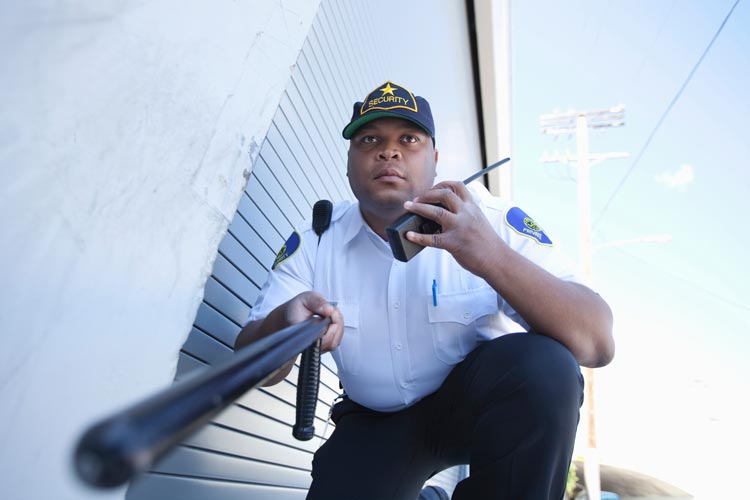The Potential Problems of a Guard Company Offering Executive Protection Services
We talk about the difference between bodyguards and executive protection all of the time. However, what if a guard company provides executive protection services? Guard companies and executive protection firms may seem like the same, but they are not.
They think very differently and opposite mindsets. Security Guard companies are always looking to cut costs to preserve the small margins of net profit. They are also interested in keeping the non billable overtime hours to a minimum. Every day they crunch the numbers on each account to keep it profitable. The opposite is true in Executive Protection because the bill rates are much higher and typically bill for overtime and double time.
The client expects that the Executive Protection Agents usually work 12-hour shifts and it can lead to 14-15 hours a day. The corporation that is looking to hire a security guard company many times put an RFP out secures many bids sometimes selects the lowest bid. Many times in Executive Protection, it involves the choice of three contract companies, and the decision is not based on the lowest bid.
Many of our clients come to us at first with experiences dealing with guard companies who did not meet their expectations. They want protection that provides a security response vs. fulfilling a liability requirement. They also want to pay for people that have formal training in executive protection.
Here are the potential problems an executive protection firm could have if a guard company buys them.
Unprofessional and Lack of Training
Executive protection firms pride ourselves on excellence. At WPG, we study the Ritz Carlton Gold Standard when it comes to professional customer service. Guard companies, on the other hand, Instead, they care about making money and profit. Security guard companies have high turnover and need to recruit fast, get people out in the field, with minimum training and experience.
Consider the celebrity bodyguards or even Buddyguards we have seen on television who have failed to do their jobs. In some cases, this failure is due to unprofessionalism, lack of training, or no training, and it is about money before quality personnel. We have seen some hire club bouncers and even actors doing security as a survival job. Some have gotten the client into lawsuits on the use of force issues, discrimination suits, and violation of confidentiality agreements. A bodyguard could be protecting a celebrity and decide to post pictures and their locations on social media. While that may seem harmless at first, what they don’t realize they’ve done is tell the entire world that a celebrity is in a particular location. This carelessness may let criminals know where they are if they wanted to harm them in any way. It is also violating your confidentiality agreement with the client and company.
Unlicensed and Unqualified
Many people don’t realize that executive protection firms are licensed. Unlicensed protection companies can potentially put their clients in harm’s way. Many states, including California, require this license by law to work in this industry. Licensing requires that agents have the proper training to do their job of protecting the client effectively.
For an executive protection agent, training is crucial. A common misconception is that this industry is about the physical protection of the client, using guns, and hand-to-hand combat. While this is true to a degree, other types of training are necessary for protection, which includes preventing attacks before they begin. It typically takes about 600 hours of executive protection training vs. a security guard only needs 40 hours.
An unlicensed company may not have the provided training when it comes to protection. They may have a background in police work, but that doesn’t mean that they know how to protect a client. Today we see people with no formal training calling themselves executive protection agents. We are witnessing security guard companies utilize security guards in the role of executive protection agents and paying them less to save costs. This can occur on special event security details where an executive protection agent can manage the event, and it supplemented by a security guard with minimum and no executive protection training.
The law on licensing requirements is relatively recent. State licensing security boards have cracked down on agencies without licensing. However, you may still come into contact with unlicensed bodyguards, so it’s essential to always do your research before working with a protection agency.
Cost Cutting
This is the most significant difference between guard companies and executive protection firms . Guard companies will continuously cut costs so that they can bring in more money. Cost-cutting can come in the form of having fewer guards on duty to protect their client or substituting security guards that have no formal protection training.
Cost-cutting compromises the quality of the service provided. It means they’re not doing everything they can to make sure an individual is protected, which can lead to danger. Plus, the company may be billed at executive protection bill rates, and they are expecting that service.
If a guard company offers executive protection services, there is a huge possibility that the executive protection firm will slowly utilize security guards to provide executive protection services and save costs. This happens every day in the industry. We highly recommend that if you are using executive protection services from a security guard company that you get what you are paying for. For this reason, it’s always important to do your research and make sure you know who you are hiring for protection.








